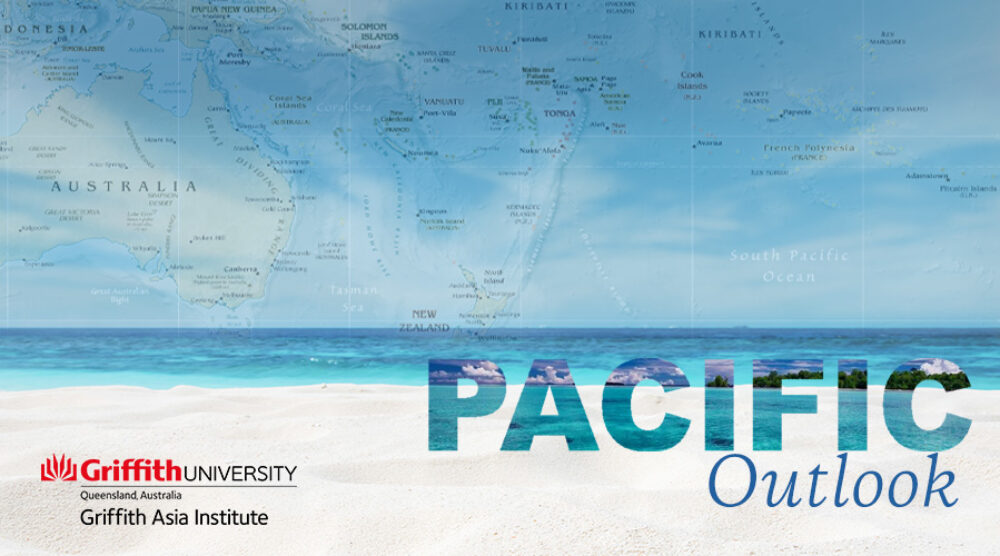Bougainville president-elect receives congratulations
Having been confirmed as President-elect in Bougainville, Ishmael Toarama has received congratulations on his electoral victory.
The Prime Minister of Papua New Guinea, James Marape, made no use of the term ‘independence’ in his message of congratulations. However, he did commit to meeting with President-elect Toarama in the coming weeks and to convene a meeting of the Joint Supervisory Board to start work on the way forward.
Notable among the congratulations received were those from the Taiwanese representative in Papua New Guinea, Oliver Liao. In his letter to Mr Toarama, Mr Liao made reference to plans to establish an office of the Taiwan International Cooperation and Development Fund in Buka. He identified a number of ways in which Taiwan could support Bougainville, including by offering scholarships to students.
Palau elections underway
Elections are underway in Palau. The primary vote for president saw an initial four candidates whittled down to the final two. Palauans will choose their next President in conjunction with the parliamentary elections to be held in November.
It will be a significant change for the people of Palau as this sees the end of the tenure of Tommy Remengesau Jr who has served as President for two terms. Of course, the most immediate challenge facing whoever takes over from him is Covid-19.
Palau remains one of several Pacific island countries that has had no reported cases of the disease. However, given the reliance of the economy on tourism, the closure of the borders has had a massive impact.
The number of women who have nominated in these elections has fallen significantly from thirteen in 2016 to just three this time around. Senator J. Uduch Sengebau-Senior is running for the office of Vice-President as an independent.
USP saga continues
The saga that has engulfed the senior levels at the University of the South Pacific continues. The government of Fiji has informed the University that it is suspending payment of its financial contributions with immediate effect. Whilst Fiji makes the largest contribution in financial terms, the university is owned by 12 member states.
The Fiji government claims that it remains dissatisfied with day to day governance of the University’s affairs, reflecting an ongoing concern with the leadership of the Vice-Chancellor and President, Professor Pal Ahluwalia. However, the Council of the University appears to be maintaining its support of the VC. Their concerns are with what they consider to be inappropriate activities on the part of the Pro-Chancellor Winston Thompson and Mehmood Khan who is chair of the University’s risk and audit committee.
The actions of the Fiji government have been strongly criticised by associations that represent staff and students at the university
Pacific leaders give addresses to the 75th UN General Assembly
The leaders of Pacific island governments have addressed the 75th General Assembly of the United Nations. In keeping with the times, they made their addresses via pre-recorded video statements.
Unsurprisingly, many of the region’s leaders used their platforms to restate their position that the greatest threat they face is that arising from the impacts of climate change. Whilst they recognised the huge impacts of Covid-19 on the global economy, they remained steadfast in calling for greater international cooperation and ambition to make the recovery one that is low-carbon and focused on sustainability for all.
The Prime Minister of Vanuatu drew attention to the region’s concerns about alleged human rights abuses in West Papua. Indonesia used their right of reply to refer to Vanuatu as an ‘ignorant’ country with an ‘unhealthy obsession’ about what they maintain is an assault on their sovereignty.
India increases focus on Pacific islands region ahead of the Quad meeting
Whilst India has had a focus on relationships with Pacific island countries for some time, there have been a couple of indications recently that this may be increasing.
A project funded by the government of India to support Palau was highlighted as an illustrative example of South-South cooperation in the region. This comes further to India’s ‘Act East’ policy. This policy has been in place for some time and has been concretised to some extent by the Forum for India-Pacific Island Cooperation.
Elsewhere, the government of India has established a new division within its Foreign Ministry. This division, headed by an ‘Additional Secretary’ will focus on relationships and engagement with South-East Asian countries, Pacific island countries and the wider Indo-Pacific.
All of this comes ahead of a meeting of the foreign ministers of the Quad nations (USA, Japan, Australia and India). Increased cooperation among these ‘like-minded partners’ to address the rise of China in the region is likely to be high on the agenda.
Tess Newton Cain is an Adjunct Associate Professor at the Griffith Asia Institute and project lead of the Pacific Hub.








